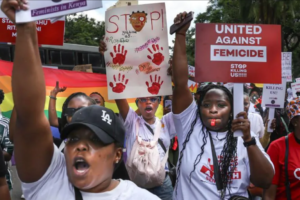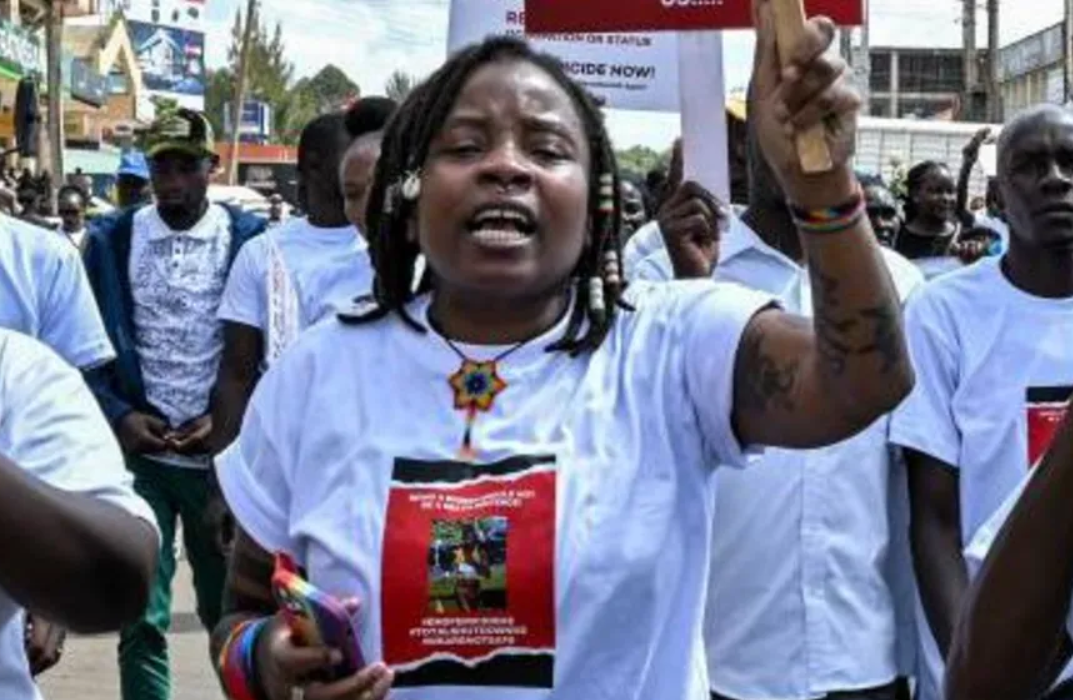There have been fresh demands for more action to combat femicide and gender-based violence (GBV) in Kenya following the savage murder of Rebecca Cheptegei, an Olympic athlete from Uganda, by her ex-partner. An ex-boyfriend attacked the 33-year-old long-distance runner and set her house on fire in Trans Nzoia County, Western Kenya. She later died from her injuries. This tragic event has brought regional violence against women into sharp focus, particularly in Kenya, which has one of the highest femicide rates in Africa.
The Murder of Rebecca Cheptegei: A Brutal Crime
Famous Olympic competitor Rebecca Cheptegei became a victim of gender-based violence when her ex-partner doused her with gasoline and set her on fire. In addition to dying from his wounds, the assailant suffered burns throughout the attack. Tragically, Rebecca’s cries for help were unanswered, given that there had been earlier accusations of violence; this highlights the systemic problem of Kenya’s inability to safeguard women from abusive spouses.
There has been a troubling pattern, and Cheptegei’s death is just one example of it. There were more than 10 cases of gender-based violence against women in Kenya in January. Women all around the nation are losing their lives to femicide, which the UN defines as the intentional killing of a woman for reasons related to her gender, and there has been no success in bringing those responsible to justice.
Testimonials from Survivors: The Unspoken Anguish
Jane, a Kenyan lady who has been underground for almost a year, tells the horrific story of how her ex-partner brutally assaulted her. Having survived a horrific stabbing that changed her life forever, Jane describes the night her estranged husband attempted to murder her. “He wanted to murder me. He then abandoned me after stabbing me. “I would be dead if the neighbors hadn’t come to my rescue,” she remembers.
Jane still lives in constant terror after fleeing her abusive marriage; her ex-husband haunts her with threats to “finish her off.” She has had a difficult time obtaining safety and justice, as is common for survivors of intimate relationship violence, due to the fact that authorities ignored her multiple reports of assault. Tragically, Jane’s experience exemplifies how the system frequently fails Kenyan women, leaving them to endure terror even as their perpetrators enjoy lifelong impunity.

Data on Gender-Based Violence in Kenya Reveals a National Emergency
According to the World Health Organization (WHO), 38 percent of Kenyan women who are 15 to 49 years old have been victims of intimate relationship abuse. Recognizing the gravity of the problem, Uhuru Kenyatta, Kenya’s previous president, proclaimed gender-based violence a “national crisis” in 2021. The problem, however, is still very much alive, as a government assessment from the following year found that 41% of married women had been victims of physical violence.
More than 500 women were murdered in Kenya between 2016 and 2023, according to a recent survey by Africa Data Hub. The majority of these crimes (75% of the total) were carried out by somebody the victims knew, such as a partner, relative, or friend. Legislation has been passed to combat gender-based violence, but those who oppose it say it isn’t being properly enforced and that those responsible aren’t being held accountable.
Perpetuating the Cycle of Violence Against Women: Patriarchy and Femicide
Patriarchal systems that devalue women are the foundational cause of gender-based violence in Kenya and throughout East Africa. As a form of control, violence is all too common, and women who challenge gender conventions by doing things like being financially independent are often the targets of their spouses’ aggression.
According to Sunita Caminha, an expert on the topic from UN Women’s work on eliminating violence against girls and women in southern and eastern Africa, the issue is pervasive across the continent. Twenty thousand women were killed in Africa in 2017, making it the continent with the highest number of femicide instances worldwide, according to a recent UN report. Unfortunately, women’s social and economic advancement—including that of athletes like Cheptegei—has left them more susceptible to violent retaliation from males who perceive it as a threat to their dominance.
Law Enforcement’s Role: A Fragile System
Kenya has legislation against gender-based violence, but few people believe it is being enforced. Many police stations around the nation still do not have gender desks, despite their introduction in 2004 to facilitate the reporting of abuse by women. Cheptegei lived in Trans Nzoia, a region where the lack of a gender desk at any of the stations makes it very difficult to record and investigate such occurrences.
Conclusion: A Plea for Transparency and Reform
There is an immediate need to address the femicide epidemic in Kenya, as the tragic loss of Rebecca Cheptegei serves as a sharp reminder. There are laws and initiatives in place to address gender-based violence, but there is still a significant lack of action. Real protection and justice are more important than legal frameworks for women like Jane, who are in continual terror of their abusers. Kenya must now put a stop to the senseless violence that has taken the lives of far too many women and girls.


















